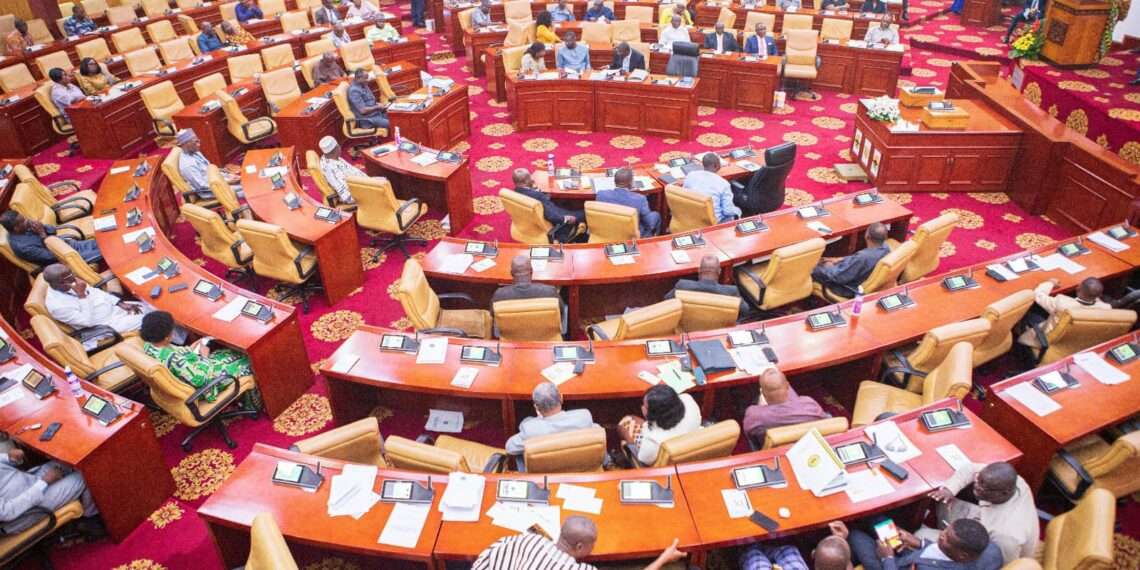Richard Dela Sky has argued that the belief an MP must vacate their seat merely for filing nomination papers to contest under a different platform in a future Parliament is a narrow reading of Article 97.
He explained that this interpretation not only exceeds the Constitution’s text and intent but also undermines MPs’ right to political association.
The experienced lawyer emphasized that the core purpose of Article 97 is to maintain stability in the current Parliament, not to restrict MPs from pursuing future political opportunities.
“Forcing an MP to vacate their seat for indicating an intention to change platforms in the next Parliament would penalize them for prospective actions that bear no impact on the present term. Such an interpretation would infringe upon the MP’s right to political freedom and association under Article 21 of the Constitution, stifling political expression and participation—values the Constitution ardently defends.
“This reading would extend the framers’ intent beyond its logical boundaries, intruding upon MPs’ rights to shape their political futures while preserving their current obligations to constituents”.
Richard Dela Sky
Dela Sky further acknowledged that critics may argue allowing MPs to file nominations under different platforms for a future Parliament without vacating their seat could undermine party loyalty and discipline.
However, he countered that this view fails to recognize the complex responsibilities MPs have. Party loyalty should not be equated with blind conformity, and the Constitution upholds an individual’s right to explore alternative paths without neglecting their current duties.

He emphasized that filing to contest under a different platform in a future Parliament does not diminish an MP’s commitment to the party they were elected to represent, as long as they remain loyal to that platform during their current term. “Indeed, party discipline should be balanced against the right to free association and the need for a robust democratic process”.
Dela Sky also noted that political parties can and should create internal mechanisms to address loyalty concerns, but these mechanisms must function within a constitutional framework that upholds MPs’ rights to political association and expression.
He argued that interpreting Article 97 to permit MPs to contest future elections without vacating their current seats does not weaken party loyalty.
Rather, he emphasized, it clarifies the boundaries where both party loyalty and individual political freedom can coexist.
Article 97 Protects Electoral Mandate from Manipulation
Furthermore, Richard Dela Sky further argued that the primary purpose of Article 97(1)(g) and (h) is to prevent manipulations of parliamentary composition that could distort the electorate’s mandate.
He explained that this provision addresses scenarios where an MP might change their allegiance mid-term, potentially disrupting the balance of seats and misrepresenting the will of the people.
He pointed out that, in a closely divided Parliament like Ghana’s current 137-137 split +1, a defection could destabilize the entire composition, undermining the democratic balance determined by the voters.

As such, he emphasized that by prohibiting such changes during the term, the framers of the Constitution ensured that the electoral mandate remained intact until Parliament’s dissolution, preserving the legislative balance initially endorsed by voters.
“Allowing an MP to file for a future election under a different platform, on the other hand, does not impact this balance. It merely signals intent for a future term, which neither alters the seat distribution nor misleads constituents.
“This distinction is critical; the Constitution seeks to protect the present configuration of parliamentary seats, not to restrict MPs’ future ambitions. By maintaining this balance, Article 97 aligns with democratic ideals that prioritize voters’ choices over individual political ambitions”.
Richard Dela Sky
He further argued that the framers included Article 97(1)(g) and (h) in Ghana’s Constitution to safeguard the electorate’s mandate, ensure stable parliamentary representation, and protect against unexpected shifts that could misrepresent voters’ intentions.
Dela Sky stated that requiring an MP to vacate their seat simply for indicating future political aspirations is excessively restrictive and contradicts the Constitution’s intent.
He emphasized that such an interpretation would violate MPs’ rights to political association and expression—fundamental rights in any democratic system. “By upholding the distinction between current-term obligations and future aspirations, we affirm both parliamentary stability and MPs’ political freedoms”.
Dela Sky explained that under Article 97(1)(g), even if an MP is expelled, resigns, or otherwise acts to forfeit party membership, they are not automatically removed from Parliament during their current term.
He noted that instead, the MPs remain in Parliament, identified with their former party, until the term ends—unless they resign, die, or face disqualification that would have prevented their election.
READ ALSO: UN Urges Allies To Stop Enabling Sudan’s Conflict





















